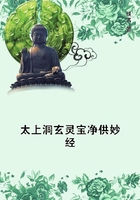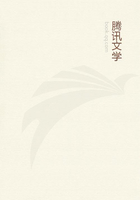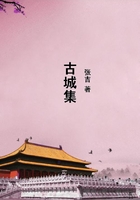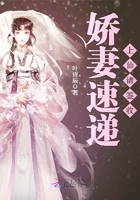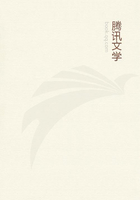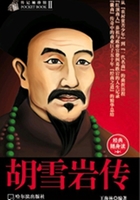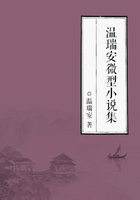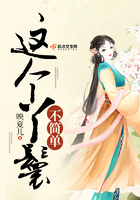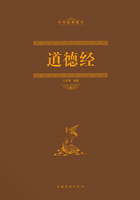As some peoples believe a man's soul to be in his shadow, so other (or the same) peoples believe it to be in his reflection in water or a mirror. Thus the Andamanese do not regard their shadows but their reflections (in any mirror) as their souls. When the Motumotu of New Guinea first saw their likenesses in a looking-glass, they thought that their reflections were their souls. In New Caledonia the old men are of opinion that a person's reflection in water or a mirror is his soul; but the younger men, taught by the Catholic priests, maintain that it is a reflection and nothing more, just like the reflection of palm-trees in the water. The reflection-soul, being external to the man, is exposed to much the same dangers as the shadow-soul. The Zulus will not look into a dark pool because they think there is a beast in it which will take away their reflections, so that they die. The Basutos say that crocodiles have the power of thus killing a man by dragging his reflection under water. When one of them dies suddenly and from no apparent cause, his relatives will allege that a crocodile must have taken his shadow some time when he crossed a stream. In Saddle Island, Melanesia, there is a pool into which if any one looks he dies; the malignant spirit takes hold upon his life by means of his reflection on the water.
We can now understand why it was a maxim both in ancient India and ancient Greece not to look at one's reflection in water, and why the Greeks regarded it as an omen of death if a man dreamed of seeing himself so reflected. They feared that the water-spirits would drag the person's reflection or soul under water, leaving him soulless to perish. This was probably the origin of the classical story of the beautiful Narcissus, who languished and died through seeing his reflection in the water.
Further, we can now explain the widespread custom of covering up mirrors or turning them to the wall after a death has taken place in the house. It is feared that the soul, projected out of the person in the shape of his reflection in the mirror, may be carried off by the ghost of the departed, which is commonly supposed to linger about the house till the burial. The custom is thus exactly parallel to the Aru custom of not sleeping in a house after a death for fear that the soul, projected out of the body in a dream, may meet the ghost and be carried off by it. The reason why sick people should not see themselves in a mirror, and why the mirror in a sick-room is therefore covered up, is also plain; in time of sickness, when the soul might take flight so easily, it is particularly dangerous to project it out of the body by means of the reflection in a mirror. The rule is therefore precisely parallel to the rule observed by some peoples of not allowing sick people to sleep; for in sleep the soul is projected out of the body, and there is always a risk that it may not return.
As with shadows and reflections, so with portraits; they are often believed to contain the soul of the person portrayed. People who hold this belief are naturally loth to have their likenesses taken; for if the portrait is the soul, or at least a vital part of the person portrayed, whoever possesses the portrait will be able to exercise a fatal influence over the original of it. Thus the Esquimaux of Bering Strait believe that persons dealing in witchcraft have the power of stealing a person's shade, so that without it he will pine away and die. Once at a village on the lower Yukon River an explorer had set up his camera to get a picture of the people as they were moving about among their houses. While he was focusing the instrument, the headman of the village came up and insisted on peeping under the cloth.
Being allowed to do so, he gazed intently for a minute at the moving figures on the ground glass, then suddenly withdrew his head and bawled at the top of his voice to the people, He has all of your shades in this box. A panic ensued among the group, and in an instant they disappeared helterskelter into their houses. The Tepehuanes of Mexico stood in mortal terror of the camera, and five days' persuasion was necessary to induce them to pose for it. When at last they consented, they looked like criminals about to be executed. They believed that by photographing people the artist could carry off their souls and devour them at his leisure moments. They said that, when the pictures reached his country, they would die or some other evil would befall them. When Dr. Catat and some companions were exploring the Bara country on the west coast of Madagascar, the people suddenly became hostile. The day before the travellers, not without difficulty, had photographed the royal family, and now found themselves accused of taking the souls of the natives for the purpose of selling them when they returned to France. Denial was vain; in compliance with the custom of the country they were obliged to catch the souls, which were then put into a basket and ordered by Dr. Catat to return to their respective owners.
Some villagers in Sikhim betrayed a lively horror and hid away whenever the lens of a camera, or the evil eye of the box as they called it, was turned on them. They thought it took away their souls with their pictures, and so put it in the power of the owner of the pictures to cast spells on them, and they alleged that a photograph of the scenery blighted the landscape.
Until the reign of the late King of Siam no Siamese coins were ever stamped with the image of the king, for at that time there was a strong prejudice against the making of portraits in any medium. Europeans who travel into the jungle have, even at the present time, only to point a camera at a crowd to procure its instant dispersion. When a copy of the face of a person is made and taken away from him, a portion of his life goes with the picture. Unless the sovereign had been blessed with the years of a Methusaleh he could scarcely have permitted his life to be distributed in small pieces together with the coins of the realm.
Beliefs of the same sort still linger in various parts of Europe. Not very many years ago some old women in the Greek island of Carpathus were very angry at having their likenesses drawn, thinking that in consequence they would pine and die. There are persons in the West of Scotland who refuse to have their likenesses taken lest it prove unlucky; and give as instances the cases of several of their friends who never had a day's health after being photographed.


